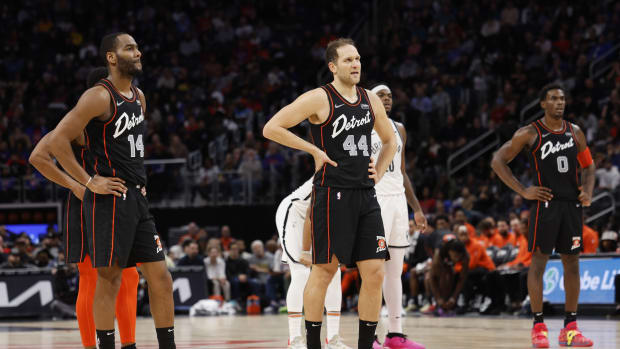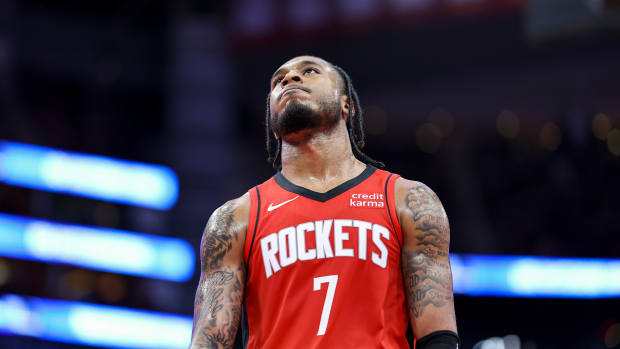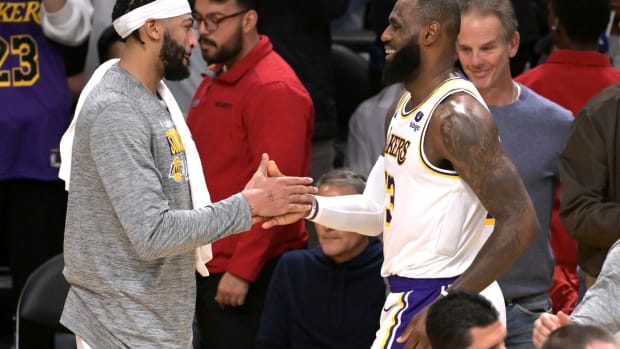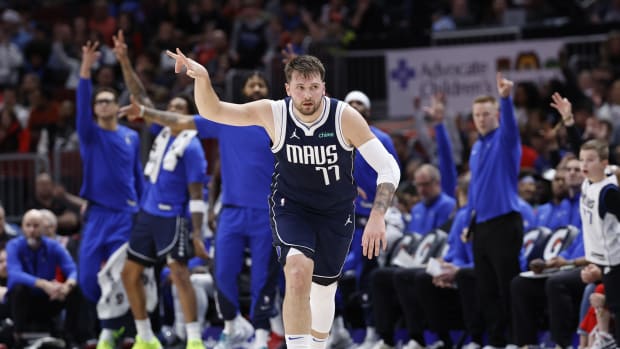Trade Grades: Marc Gasol Pushes Raptors to the Front of East's Arms Race
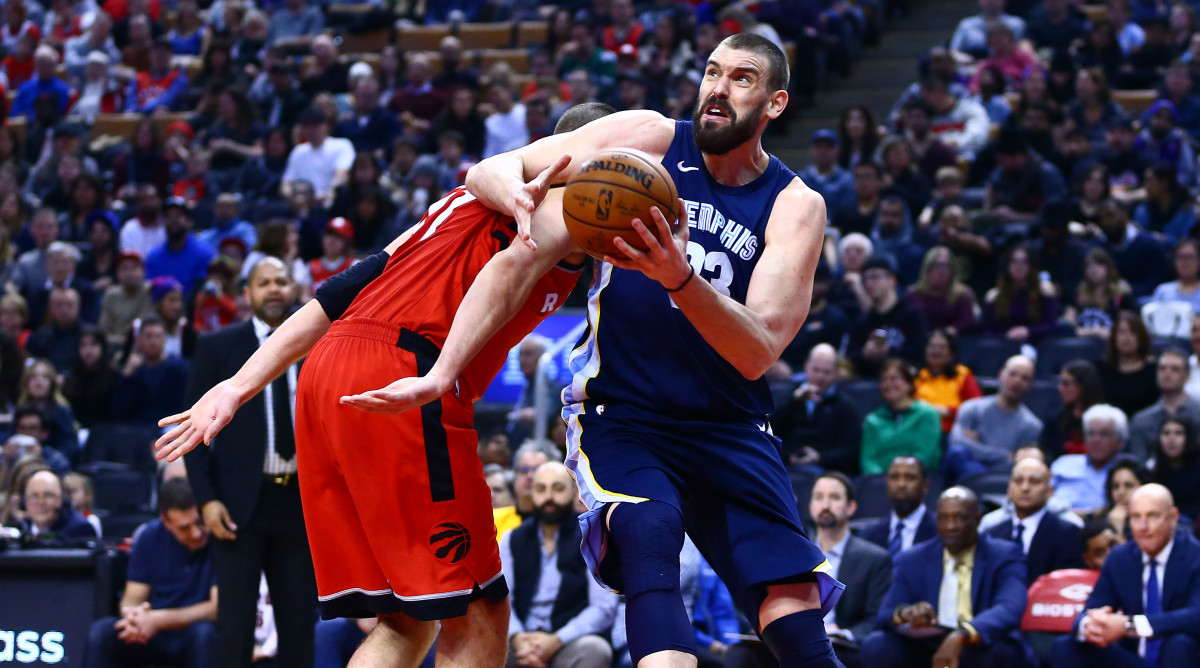
After more than a decade in Memphis, Marc Gasol will pack his bags, move across the border, and suit up for a new NBA team. The Grizzlies have reportedly agreed to move Gasol to the Raptors for Jonas Valanciunas, Delon Wright, CJ Miles, and a 2024 second-round pick, according to Adrian Wojnarowski of ESPN.com. Let’s break down the deadline deal.
Toronto Raptors: B+
The all-in Raptors already had one of the more intriguing center rotations in the league, and now add a balanced seven-footer to the mix. It doesn’t quite playoff-proof the roster, though it should help Toronto acclimate to the series-by-series adjustment the postseason requires. You want Gasol for those nights when Serge Ibaka fades out of focus or when Pascal Siakam fails to convert his open jumpers. This isn't the all-league Gasol of 2015. Yet even a more marginalized version, scaled back in most respects, is a nice addition under the circumstances. If nothing else, he is a safer, more capable version of Valanciunas: a bruiser when need be, a giant to punish opponents who dare run small, a smart team defender, and a willing shooter from deep.
Adding Gasol comes in service of Toronto's greater goals, spawned the moment they traded for Kawhi Leonard in the expiring season of his contract. Every move the team makes is focused first on this season—a hard, concerted playoff push behind one of the best all-around players in the league. If Leonard leaves this summer, so be it. All Toronto can do in the interim is give itself the best possible chance to advance, and in doing so, make a compelling case for Leonard to stay. Gasol is now a part of that strategy. The Raptors have no glitz to offer nor any sort of hometown pull for Leonard. They could, however, end up as his best basketball fit, driven by a bold front office with the willingness to pull off just this kind of move. There are franchises where a star player could feel marooned in their circumstances, watching year after year as an old lineup grows stale. And then there's Toronto, where Masai Ujiri will trade a beloved guard after an All-NBA season and dismiss the Coach of the Year when they've run out of upward mobility.
Gasol is a logical extension of what Ujiri and the Raptors have been working towards, and at a perfectly acceptable cost. Valanciunas has been on the trade block for years. Wright is a fine young player, but a fine young player who will need a new contract this summer—quietly an issue for a team with over $100 million in committed salary before accounting for Leonard or Danny Green on new contracts. Wright was a luxury. Wonderful as it is to have a player that useful as your ninth or tenth man, it isn't all that practical for a contending team with four better guards on its roster. In Gasol, the Raptors have shifted their resources to better account for what they might find in the postseason. Someone will need to take body blows from Joel Embiid, hang around with Al Horford, and pull Brook Lopez from the paint. Gasol could theoretically do it all, and lands with a team that has other options for when the theory falls flat.
Whether or not you believe the Raptors to be the favorites in the East—where the Sixers picked up Tobias Harris, the Bucks added Nikola Mirotić, and the Celtics have won 10 of their last 11 games—a deal like this at least advances their place in that conversation.
Memphis Grizzlies: C+
Three weeks ago, Memphis made clear its intention to move both Gasol and long-time point guard Mike Conley, albeit with an asterisk. Any plans to move Conley could wait; because he had another guaranteed year under contract, the Grizz could afford to survey the market, engage on any interesting offers, and play out Conley's exit on a longer timeline. Gasol's was a more challenging move. There are only so many teams in the league looking for centers as it is, and a built-in time restraint with Gasol's player option for next season. Memphis—and any interested suitors—couldn't be sure that Gasol would be around beyond this year, which both incentivized Memphis to move him before the deadline and shortened the list of teams that could make sense as potential landing spots.
This is not an especially impressive haul for a franchise player, but it never could be. Gasol is a 34-year-old center in a league where 34-year-old centers rarely start, much less star. His contract situation is uncertain. His long-term health and availability are fair concerns. For as much sense as he might make for a very specific type of aggressive, contending team, there are only so many of those in the league. Toronto is a nice match, and in sending Gasol to a team with real postseason aspirations, the Grizz have done right right by their star and their objectives. It would have been nice to get a first-round pick in return to help jump-start a new era. It just wasn't in the cards under the current limitations, leaving Memphis to weigh other sorts of offers from teams like Toronto and Charlotte. In this particular package, the team added a second-round pick and Wright, who makes more long-term sense for a team in construction. Supposing that the Grizzlies re-sign Wright this summer, they will get some of the prime years of his career—and perhaps a lasting, versatile piece for the next Memphis team of note. Wright's funky, instinctive style should play well alongside Jaren Jackson Jr.
Taking back Valanciunas and Miles, who have player options for a combined $26.4 million next season, is effectively the cost of doing business. The roles they play just aren't of much use to a team like the Grizzlies, though as their contracts move closer to their expiration next season, one or both could possibly be moved again. The return is ongoing. No matter where it lands, it will be most fairly evaluated not as a trade package for a star, but for an impending—if locally beloved—free agent who wasn't in the team's plans.































